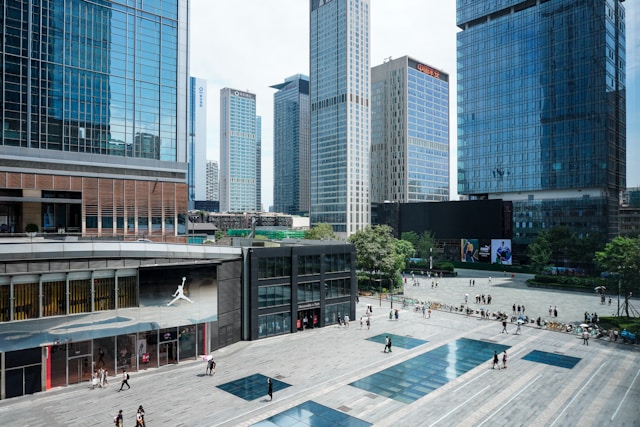
Recently, China has established three Internet courts in Hangzhou, Beijing and Guangzhou. These courts will try Internet-related cases online, all of which are located in the most flourishing and prosperous area in the aspect of China’s Internet industry.
Nel 2014 e nel 2015, due tribunali cinesi hanno rifiutato di riconoscere tre sentenze italiane, perché i tribunali cinesi hanno accertato, dopo aver verificato presso il tribunale italiano, che la sentenza è stata falsificata. Delle tre cause, la ricorrente in due casi è la stessa persona e in un altro caso agisce in qualità di agente del richiedente.
In August 2017, the Supreme People's Court of China (SPC) established the first Internet court in Hangzhou, China. Hangzhou is the headquarter of Alibaba, China's largest e-commerce company, and also the most prosperous city in China's e-commerce industry. Taobao and Tmall, operated by Alibaba are involved in an extremely large number of e-commerce disputes every year, and the courts in Hangzhou are already dealing with these disputes, so the SPC established the first Internet court in Hangzhou.
The SPC hopes to explore litigation rules to hear Internet-related cases on the basis of the Hangzhou Internet Court. As the Hangzhou Internet Court has made great progress, in September 2018, the SPC established the Beijing Internet Court and the Guangzhou Internet Court in Beijing and Guangzhou respectively.
Related Posts on Internet courts in China:
- A Close Look at Hangzhou Internet Court: Inside China's Internet Courts Series -06
- Beijing Internet Court’s First Year at a Glance: Inside China's Internet Courts Series -05
- How the Beijing Internet Court Develops and Runs its IT System: Inside China's Internet Courts Series -04
- Can I resolve cross-border online shopping disputes through the Chinese Internet Court: Inside China’s Internet Courts Series -03
- How to Litigate Before the Internet Courts in China: Inside China’s Internet Courts Series -02
- China Establishes Three Internet Courts to Try Internet-Related Cases Online: Inside China’s Internet Courts Series -01
Beijing is the center of China's Internet industry, where major Internet companies, such as Baidu and JD, are headquartered. Different from the high percentage of online shopping disputes in Hangzhou Internet Court, the types of Internet-related cases in Beijing are more diverse, and disputes over liability for Internet tort and other types of Internet-related disputes in the areas of intellectual property rights and administrative litigation are quite common. Guangdong Province, where Guangzhou is located, is another center of China's Internet industry. Tencent, China's largest Internet company, and other well-known technology companies, such as Huawei and Dajiang, are also located in Guangdong.
1. What cases are heard in Internet courts?
According to the “Provisions of the Supreme People's Court on Several Issues Concerning the Trial of Cases by Internet Courts” (最高人民法院关于互联网法院审理案件若干问题的规定), the court has jurisdiction over the following first-instance civil and administrative Internet-related cases:
(1) Contractual disputes over online shopping, services, and financial loans, etc;
(2) Online copyright disputes;
(3) Disputes over internet domain names;
(4) Disputes over using the Internet to infringe on others' personal and property rights;
(5) Disputes over product liability as a result of online shopping;
(6) Internet-related public interest lawsuits brought by procuratorial organs;
(7) Administrative litigation arising out of administrative Internet management of administrative organs.
The Internet court is a primary people’s court, so its court of the second instance is the local intermediate people’s court.
Most of the evidence in the cases heard by Internet courts is electronic data and is stored on the Internet. Therefore, the SPC attempts to examine the authenticity of the processes by which the electronic data is generated, collected, stored and transmitted through technical means and relevant mechanisms. For example, if a party collects and fixes electronic evidence through electronic signatures, trusted timestamps, hash verification, and blockchain, the Internet court can rely on the above-mentioned methods to verify the authenticity of such evidence.
The SPC requires that online trials should be in compliance with principles of trial in person and direct speech principle, so the court should hold a trial with the help of the online video system, rather than solely relying on graphic or vocal communication. Where any litigant that fails to participate in an online trial on time will be deemed as "refusing to appear in court", unless a network failure, equipment trouble, power interruption, or other force majeure events occur, and where a litigant quits an ongoing trial without permission, it will be deemed as "retreating during the court session without permission".
Internet Courts will also serve litigation instruments and evidential materials provided by the other side of litigants through the SPC-operated China Judicial Process Information Online, the litigation platform operated by itself, short messages, fax, e-mails, the instant message account, or by other electronic means.
2. Attempts of the Hangzhou Internet Court
The Hangzhou Internet Court has been established for more than a year. We can first take a look at the operation of the Hangzhou Internet Court to understand the prospects and challenges of the Internet Court in China.
The Hangzhou Internet Court was formally established on18 August 2017. As of August 17, 2018, the court had received 12,074 Internet-related cases and 10,391 cases are concluded. In these cases, if the defendant responded online, it would be tried in an online trial. The average duration of these online trials was 28 minutes, and the average processing period from filing to trial and conclusion was 38 days.
In June 2018, the court rendered a judgment on a dispute over the infringement of the information network transmission right. The plaintiff in the case uploaded the evidence of the defendant's infringement to Factom blockchain and Bitcoin blockchain. In this case, the court confirmed the legal effect of electronic data evidence preserved using blockchain technology. This is the first time for Chinese courts to confirm the legal effect of the evidence preservation by the means of blockchain technology.
In August 2018, the court rendered a judgment on China's first case of unfair competition in big data products. In the case, the court supported Taobao, the plaintiff’s request and determined that the defendant’s conducts, purchasing Taobao’s data, reselling it to others, and gaining consequential profits, constituted unfair competition.
However, the Hangzhou Internet Court has also been criticized for its lack of impartiality.
Hangzhou Internet Court is technically supported by Gongdao Company. This company states that it is invested by a company controlled by Hangzhou Municipal Government and is technically supported by Alibaba Group. In other words, the technology of the Hangzhou Internet Court derives from the Alibaba Group. However, Alibaba and its subsidiaries (such as Taobao) are related to most Internet disputes in Hangzhou. For example, Alibaba and its subsidiaries are the plaintiff or defendant of these cases. Therefore, there are public doubts as to whether the Hangzhou Internet Court can maintain its independence.
At present, Internet courts in Beijing and Guangzhou may compete with the Hangzhou Internet Court, which may prompt Chinese Internet courts to endeavor to eliminate the public doubt of their impartiality.
If you would like to discuss with us about the post, or share your views and suggestions, please contact Ms. Meng Yu (meng.yu@chinajusticeobserver.com).
If you wish to receive news and gain deep insights on the Chinese judicial system, please feel free to subscribe to our newsletters (subscribe.chinajusticeobserver.com).
Contributors: Guodong Du 杜国栋 , Meng Yu 余萌








